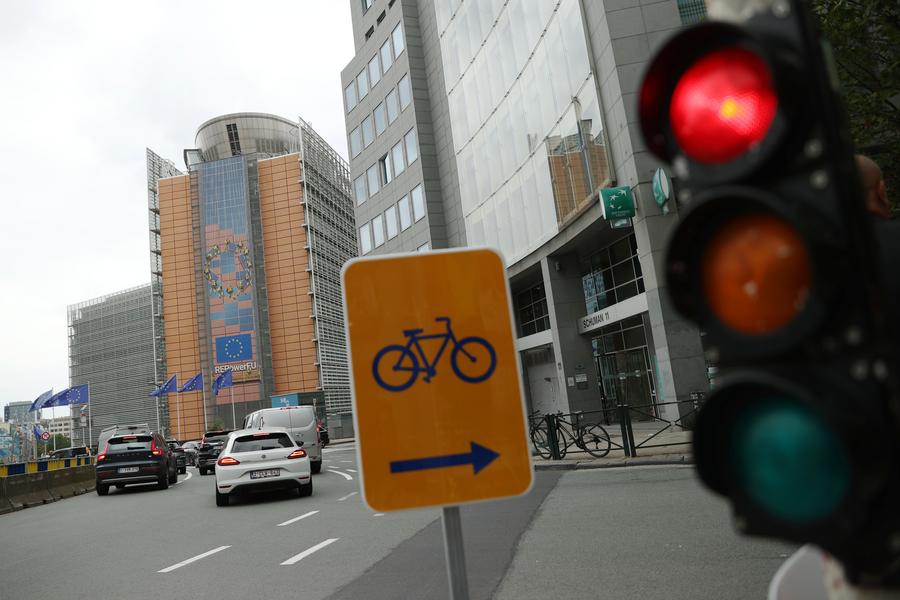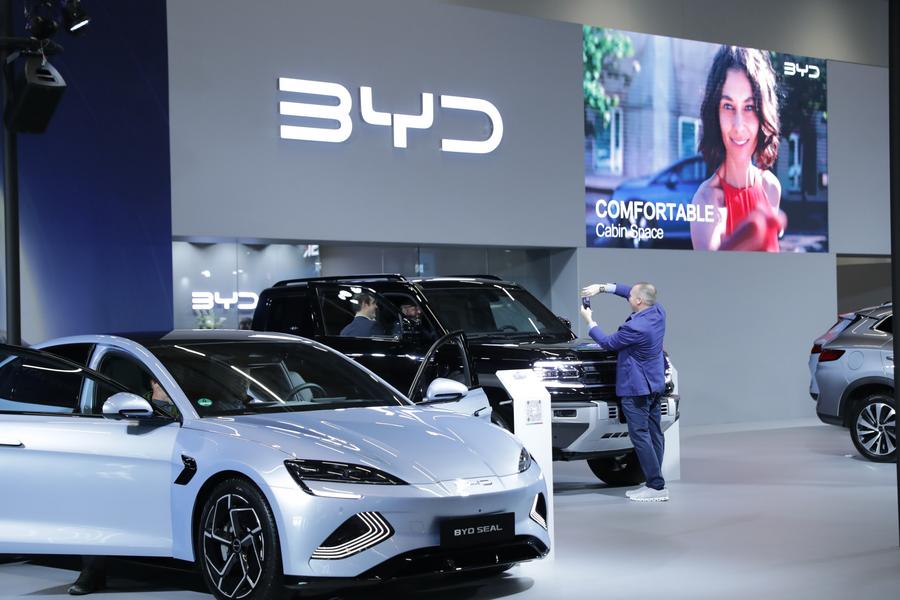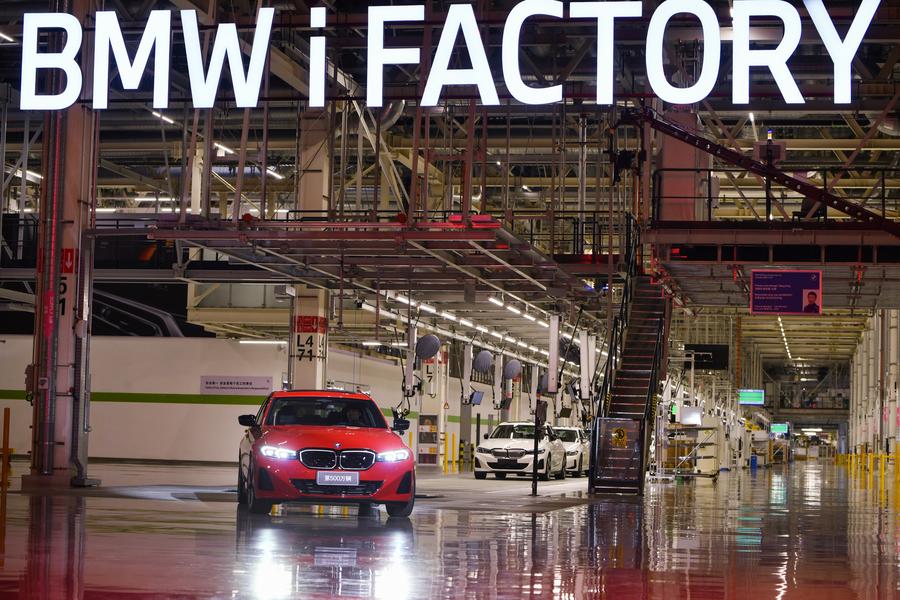
BRUSSELS – The European Commission announced Friday that it passed a vote to impose punitive tariffs on Chinese battery electric vehicles, sparking criticism from several European countries and auto industries who warn the move could boomerang against the European Union's competitiveness.
Though the Commission said it had secured necessary support from member states, 12 EU members abstained from the vote and five voted against the decision. Meanwhile, the Commission also highlighted the continued work between the EU and China to explore an alternative solution.
The loudest opposition against the tariff came from Germany. In the wake of Chancellor Olaf Scholz's call for continuing negotiations with China on Wednesday, Germany's Finance Minister Christian Lindner wrote on social media platform X on Thursday: "Tariffs on Chinese electric cars would be wrong ... We have to speak plainly and negotiate with China - but trade wars only have losers."
Echoing these concerns, Hungary voted against the tariff move.
"What they are making us do right now, or what the EU wants to do, is an economic Cold War," Hungarian Prime Minister Viktor Orban told state radio in a Friday interview, referring to the proposed EU tariffs on China.
READ MORE: EU tariffs on Chinese EVs raise trade war concerns
Matjaz Han, Slovenia's minister of economy, tourism and sport, also voiced opposition to the tariffs on Chinese EVs and warned of "too high a price" for Europe. Instead, he advocated for more practical economic and trade cooperation between the EU and China.

Finland abstained from the Friday vote. Finnish senior foreign ministry official Jukka Kuurma told local media that there was not enough proof of damage caused to the EU by the "so-called" Chinese state support to the EV industry. "We are not quite convinced that the import tariffs would be in the overall interest of the Union," Kuurma said.
The Commission's announcement on the controversial tariffs has provoked an outcry from Germany's automotive industry. They criticized that the move may hurt the competitiveness of local carmakers.
In a statement released on Friday, Hildegard Muller, president of the German Association of the Automotive Industry said the vote is a further step away from global cooperation.
ALSO READ: China files appeal at WTO over EU electric vehicle tariffs
Germany's auto giant Volkswagen also issued a statement, calling for a negotiated solution. It said that the planned tariffs are the wrong approach and would not improve the competitiveness of the European auto industry.
"Today's vote is a fatal signal for the European automotive industry," BMW CEO Oliver Zipse told local media. "Now a quick solution is needed between the European Commission and China to prevent a trade conflict that will ultimately only have losers."

Mercedes also fears negative effects on the industry. "We are convinced that punitive tariffs worsen the competitiveness of an industry in the long term," a spokeswoman was quoted by German news agency DPA as saying.
Following the EU announcement, the China Chamber of Commerce to the EU (CCCEU) expressed deep disappointment over the voting results and strong dissatisfaction with the EU's adoption of protectionist trade measures.
"We strongly encourage the EU to approach the final measures with caution, delay the implementation of these tariffs, and prioritize resolving disputes and trade tensions through consultations and dialogue," the CCCEU said in a statement on Friday.
On Friday, China's Ministry of Commerce firmly opposed the draft final ruling of the EU.
A spokesperson said the ministry urged the EU side to be clearly aware of the harm of imposing additional tariffs, as it will not solve any problems but only waver Chinese enterprises' confidence and resolve in and prevent them from investing in Europe.


